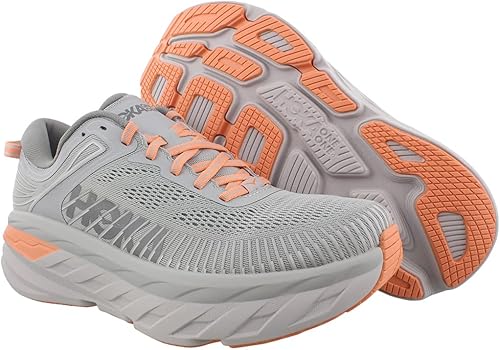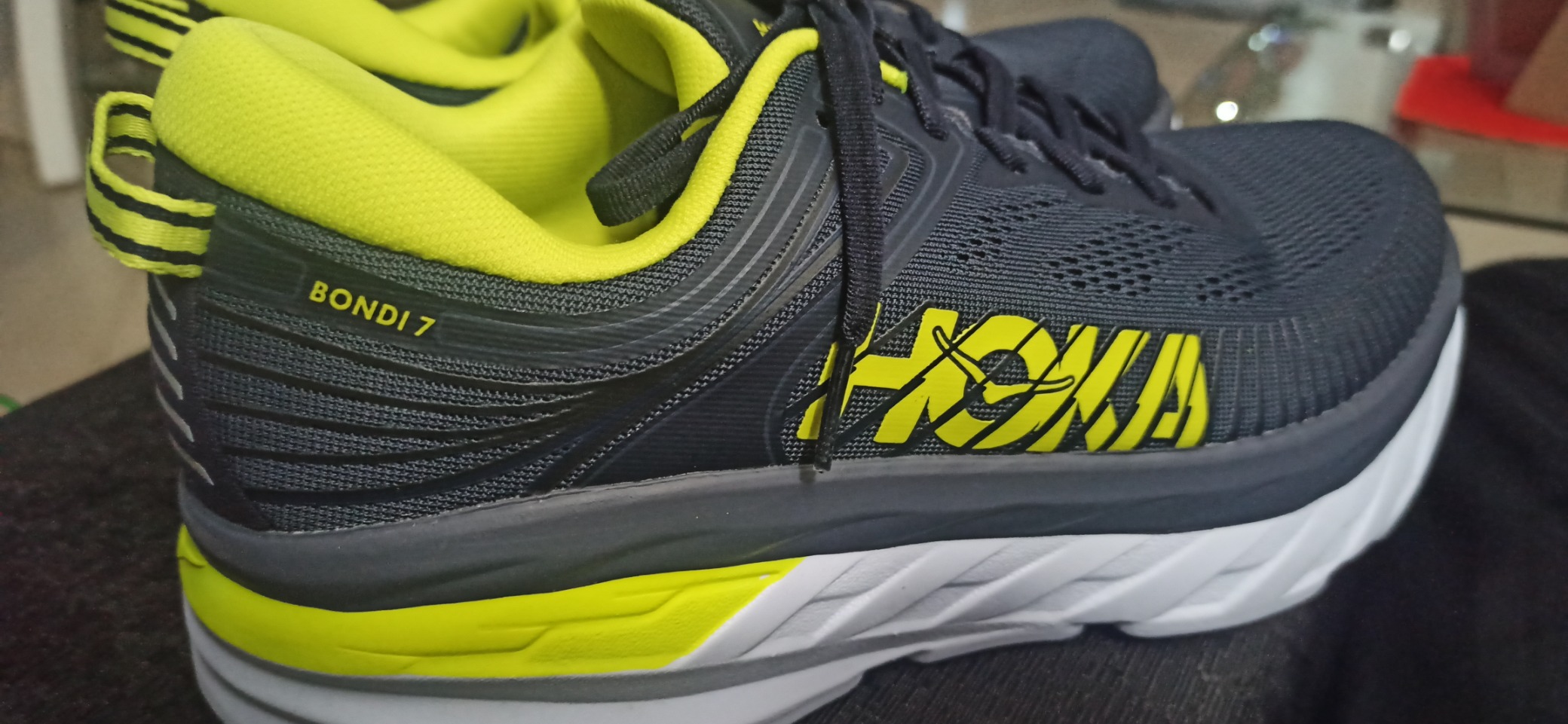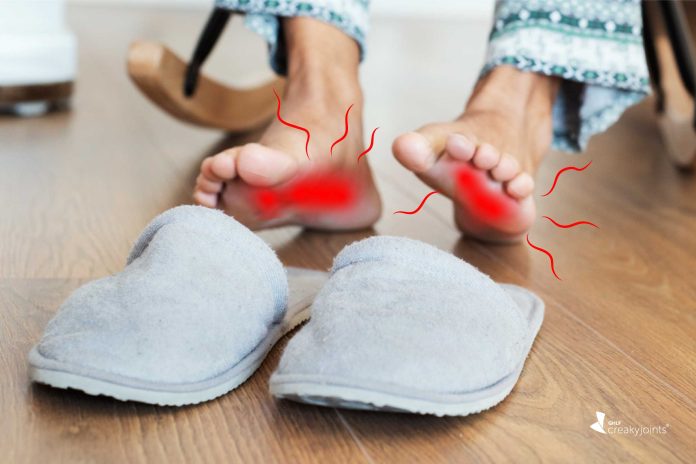Tight shoes can potentially cause gout due to restricted blood flow and increased pressure on the joints. Gout is a form of arthritis that occurs when uric acid crystals buildup in the joints, leading to severe pain and inflammation.
Wearing shoes that are too tight can exacerbate the symptoms of gout by compressing the affected joints and limiting circulation. It is important to wear properly fitting shoes to alleviate discomfort and reduce the risk of triggering gout attacks. By choosing well-fitting footwear, individuals can help prevent the development or worsening of gout symptoms.
|
Serial |
Relevant Topic |
|
1 |
Should I Wear Socks With Gout? |
|
2 |
How Good Is Walking for Gout? |
|
3 |
How to Walk With Gout? |
|
4 |
Should I Wrap My Foot If I Have Gout? |
How Tight Shoes Can Create Gout Attacks
Wearing tight shoes can have a negative impact on gout attacks. The pressure exerted by tight shoes can aggravate the sensitive joints affected by gout, leading to increased pain and discomfort. This pressure can also restrict blood flow to the affected area, further worsening the symptoms. Restricted blood flow can hinder the body’s natural ability to heal and repair damaged tissues, prolonging the duration of gout attacks. Moreover, tight shoes can contribute to increased inflammation in the joints, intensifying the swelling and tenderness associated with gout.

It is important to prioritize comfort and choose footwear that provides adequate space for the affected joints to reduce the risk of exacerbating gout symptoms. Properly fitting shoes with sufficient room for the toes and arch support can help alleviate discomfort and promote healing during gout attacks.
Symptoms Of Gout Triggered By Tight Shoes
| Signs and Symptoms of Gout Triggered by Tight Shoes
Tight shoes can lead to various signs and symptoms of gout, causing acute pain and swelling. When shoes are too tight, they exert pressure on the feet, resulting in discomfort and inflammation. The affected area may also exhibit warmth and redness, indicating an inflammatory response. Additionally, tight shoes can restrict the range of motion in the joints, making it difficult to move or walk comfortably. Gout is characterized by a buildup of uric acid crystals in the joints, and inadequate footwear can exacerbate this condition. The pressure from tight shoes may worsen the inflammation and trigger gout attacks. It’s important to wear properly fitting shoes to prevent such issues. Ensuring a comfortable fit and adequate toe room can significantly alleviate the symptoms of gout and prevent further complications. In conclusion, it is crucial to avoid wearing tight shoes as they can contribute to the development or worsening of gout symptoms. Investing in well-fitting footwear that provides adequate support and cushioning is essential for maintaining foot health and preventing discomfort. |
Factors That Creates Gout
Pre-existing joint conditions, genetics, and family history, as well as lifestyle and diet choices, can contribute to an individual’s susceptibility to gout. Pre-existing joint conditions like arthritis or previous injuries can increase the risk of developing gout. Genetics and family history play a role as well, as certain genes can make a person more prone to the condition. Lifestyle and diet choices such as consuming a diet high in purines, being overweight, excessive alcohol consumption, and sedentary habits can also increase the likelihood of developing gout.
Choose Shoes To Prevent Gout
Properly fitting shoes are crucial in preventing gout. To ensure a perfect fit, accurately measure your shoe size. Optimal toe and arch support are essential to alleviate pressure on the joints, reducing the risk of gout.
Look for shoes that provide ample space for your toes to move comfortably. A shoe with proper arch support helps distribute body weight evenly, minimizing strain on the joints. When choosing shoes, prioritize options made from breathable and flexible materials, such as leather or mesh. These materials enhance foot ventilation, preventing excessive moisture that could trigger gout attacks.
Avoid synthetic materials that can cause discomfort and restrict movement. By adhering to these guidelines, you can select shoes that fit well and reduce the likelihood of gout flare-ups.
How to Avoid Gout Triggered By Tight Shoes
To manage gout triggered by tight shoes, here are some additional tips:
Regular Foot Exercise and Stretching: Engaging in regular foot exercises and stretches can help improve circulation and reduce inflammation, easing gout symptoms.
Appropriate Footwear for Physical Activity: It is crucial to wear proper footwear that provides adequate support and cushioning during physical activities. This helps reduce the pressure on the joints and minimizes the risk of gout flare-ups.
Importance of Regular Check-ups with a Podiatrist: Regular visits to a podiatrist can help monitor and manage gout symptoms. They can provide expert advice on choosing suitable footwear and recommend personalized treatment plans to alleviate discomfort.
Common Queries for Tight Shoes on Gout

Does Tight Shoes Affect Gout?
Tight shoes can worsen gout. The pressure exerted on the affected joint can trigger inflammation and pain. Avoid wearing tight footwear to prevent discomfort and further complications.
What Are The Biggest Triggers For Gout?
Gout is triggered by high levels of uric acid in the blood. These levels are mainly influenced by certain foods and drinks, such as red meat, seafood, alcohol, and sugary beverages. Other triggers include obesity, family history, certain medications, and medical conditions like high blood pressure and kidney disease.
What Shoes To Wear If You Have Gout?
Wear shoes that provide proper support and cushioning to reduce pressure on the affected joints. Look for wide and comfortable shoes with a spacious toe box. Avoid tight-fitting and pointy shoes. Opt for shoes with shock-absorbing soles and arch support, like sneakers or athletic shoes.
Is It Better To Wear Shoes With Gout?
Wearing proper cushioned shoes can help with gout. Look for footwear that offers good support, fits well, and has a cushioned sole. It’s crucial to choose shoes that reduce pressure on the joints and minimize discomfort.

Conclusion: Can Tight Shoes Create Gout?
Wearing tight shoes can potentially contribute to the development of gout. It puts pressure on the joints, obstructs blood circulation, and can lead to inflammation. It is important to choose comfortable and well-fitted footwear to avoid unnecessary strain on the feet.
Taking care of our feet is an integral part of maintaining overall health and preventing painful conditions like gout, so choose your shoes wide.

